It certainly lived up to the billing…
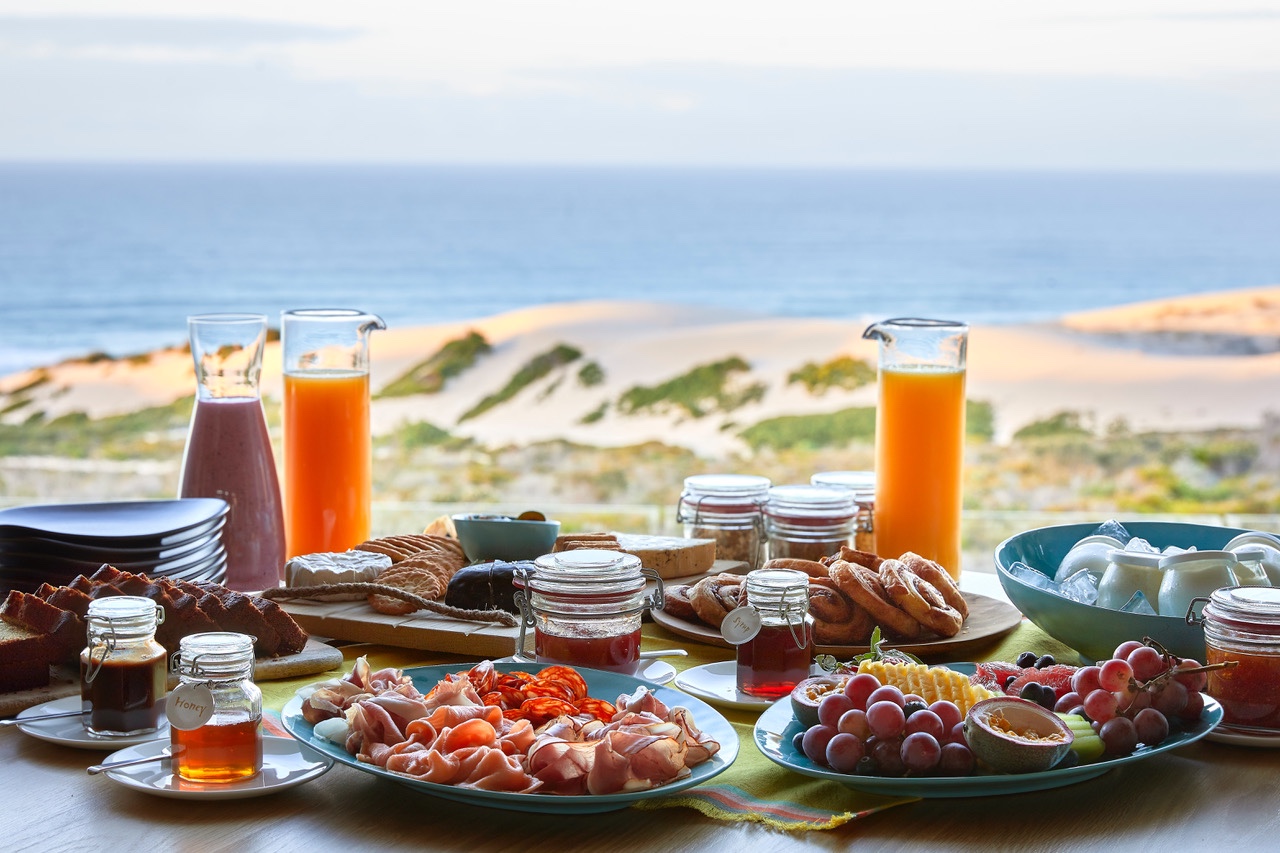

After a leisurely, fresh breakfast in Morukuru’s dining room, with its glorious, expansive view of the Indian Ocean, our small group gathered to meet Admire, who would be guiding our walk, and helping us to interpret (and, indeed, admire) the landscape and its marine life. We set off, ahead of the heat of the day, with the tide well out, making our way across the fynbos, stopping on the way to learn about all species which make up this extraordinary ecosystem, part of the Cape Floral Kingdom. Fynbos takes up only 0.04% of the world’s land area yet contains a mind-boggling 3% of the planet’s plant species – one of the densest in the world. We also heard of some of the challenges it faces from invasive species, such as Rooikrans, and how Morukuru takes steps to address these, via the work of its Goodwill Foundation.
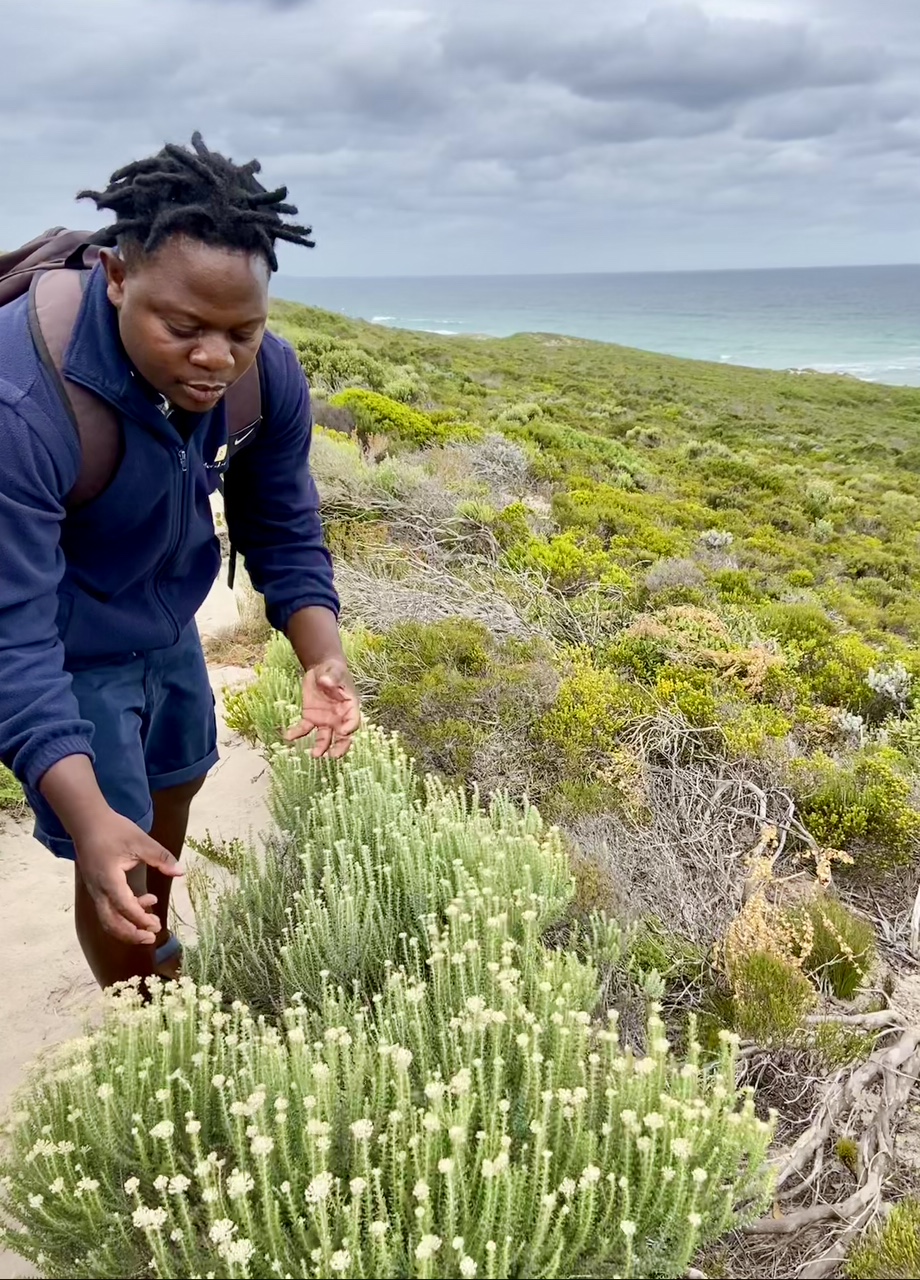

Our group comprised myself and a small family group of a 3 year old, Pippa, and her parents. As we made our way to the shoreline through the fynbos, it was clear the intrepid Pippa could safely amble ahead or behind us, with no fear of getting lost, and the only traffic to encounter would be industrious insects crossing our path. It was immediately striking how much Morukuru has to offer people of all ages.
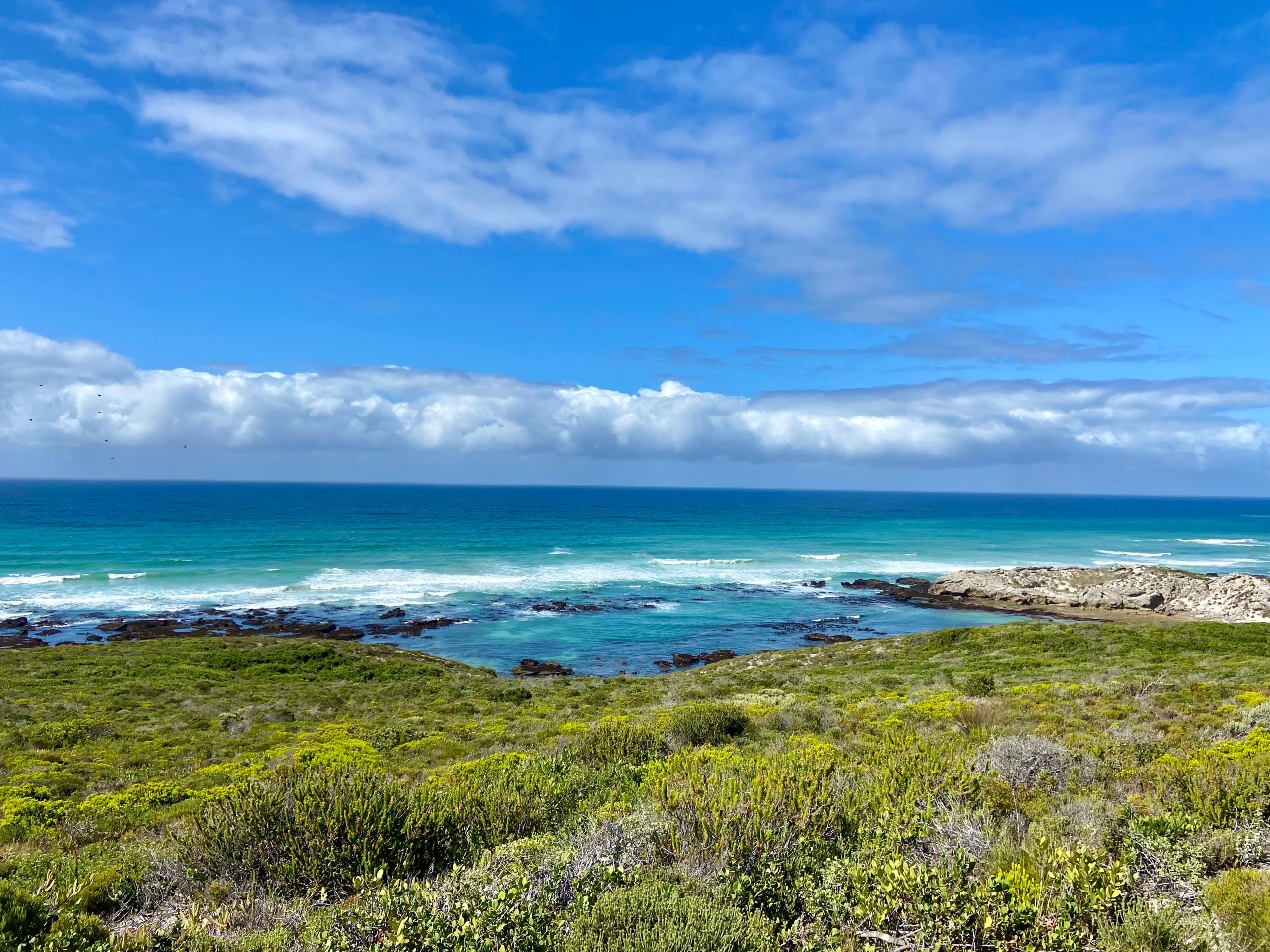

After about a mile we swung south to meet a beautiful beach, where in the winter months, guests will be able to take a ringside seat watching the southern right whales birthing in the safe waters just off the shore - (it is a Protected Marine Area so no boating or other human disturbances are allowed) -in staggeringly vast numbers. This phenomenon is certainly a bucket-list trip for anyone who loves wildlife.
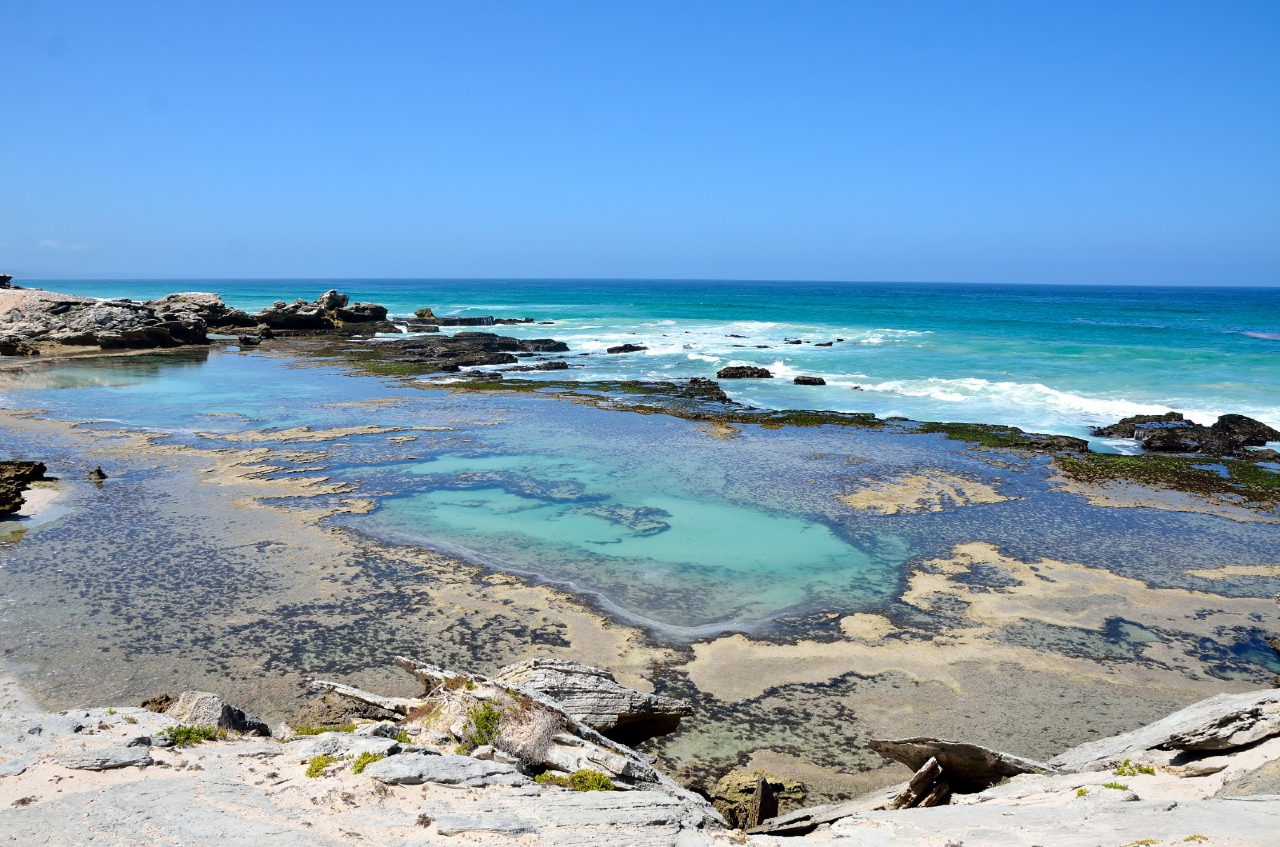

On this February day however, the whales were still many miles off, and our business was with the smaller marine life, sheltering in the myriad of rock pools created by the tide’s twice-daily retreat.
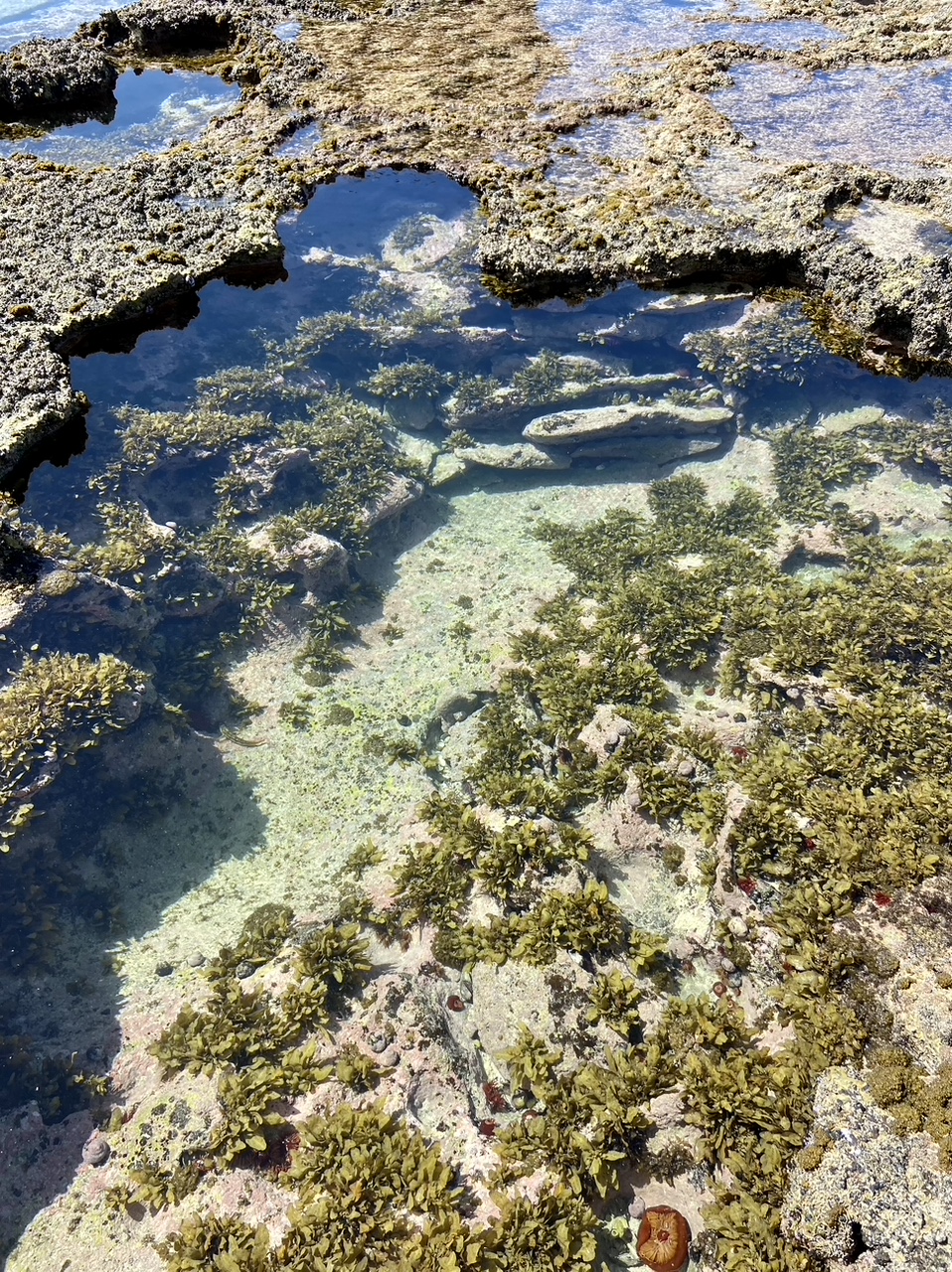

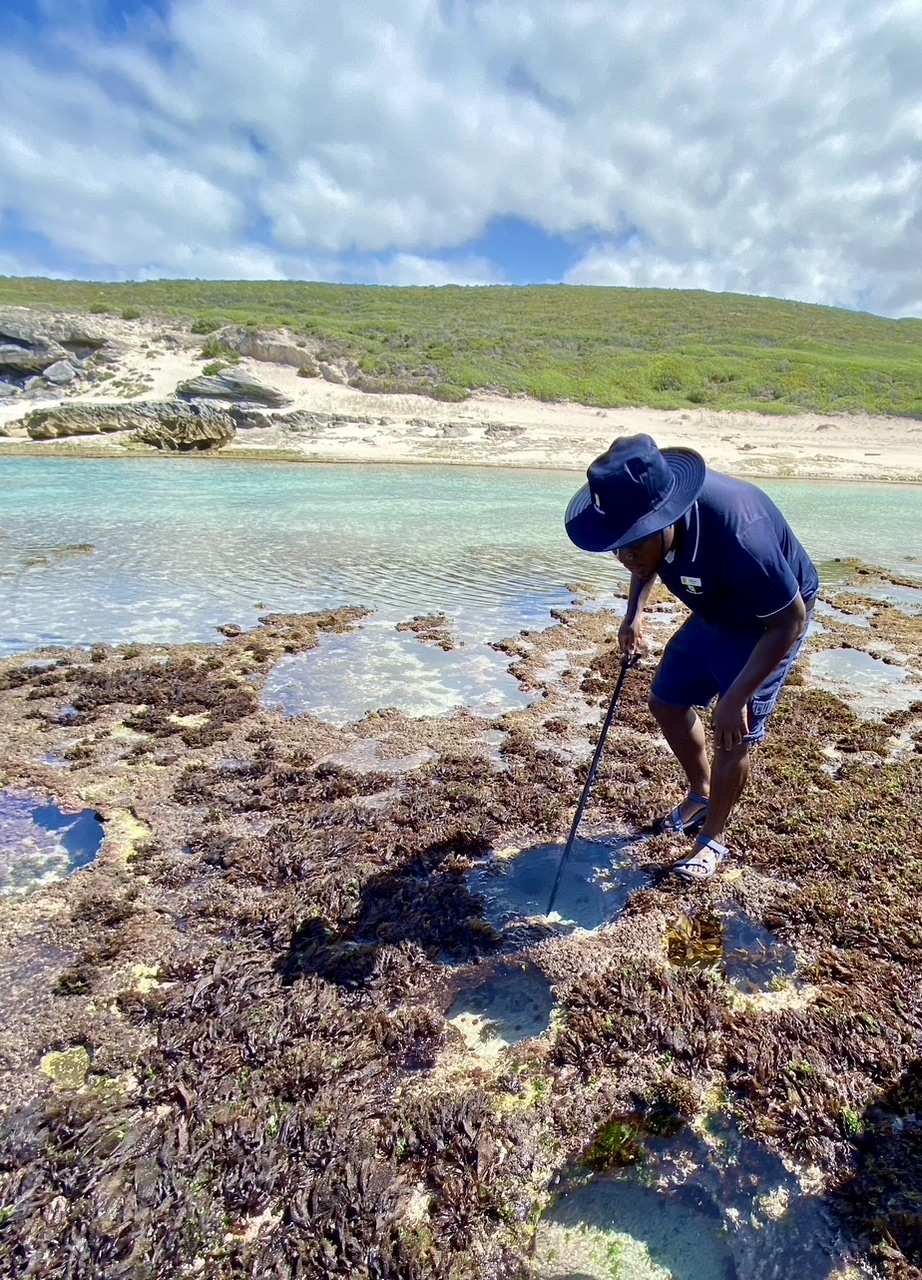

Under Admire’s expertise, these still, seemingly calm pools, glistening in the sun, soon transformed into marine underworlds teeming with life and activity. We saw Sea, Spiny and Cushion starfish, Cape Urchin and Sea Anemone. Creatures that can seem comparatively non-expressive under casual observation became fascinating once Admire translated their differing behaviours.
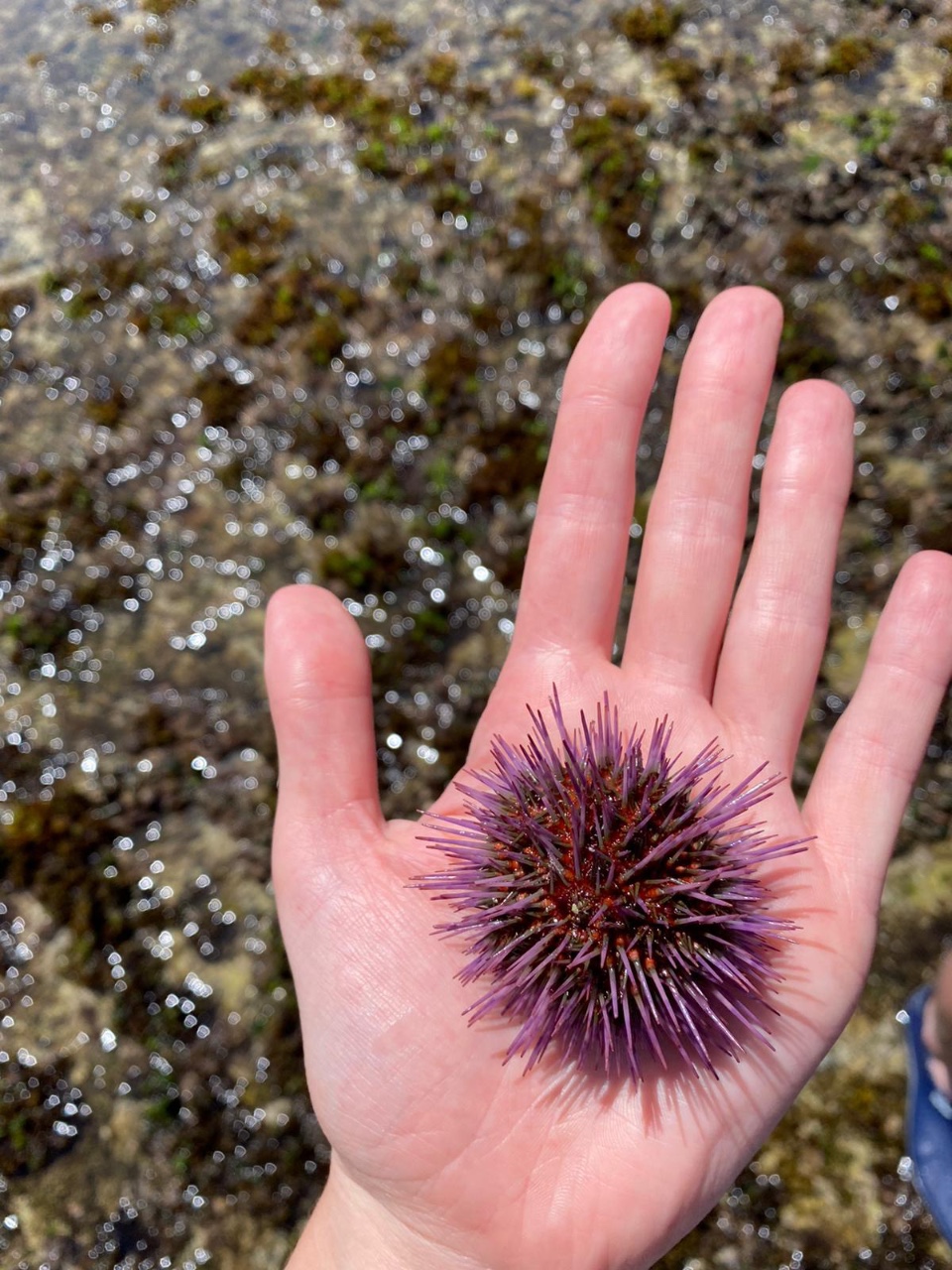

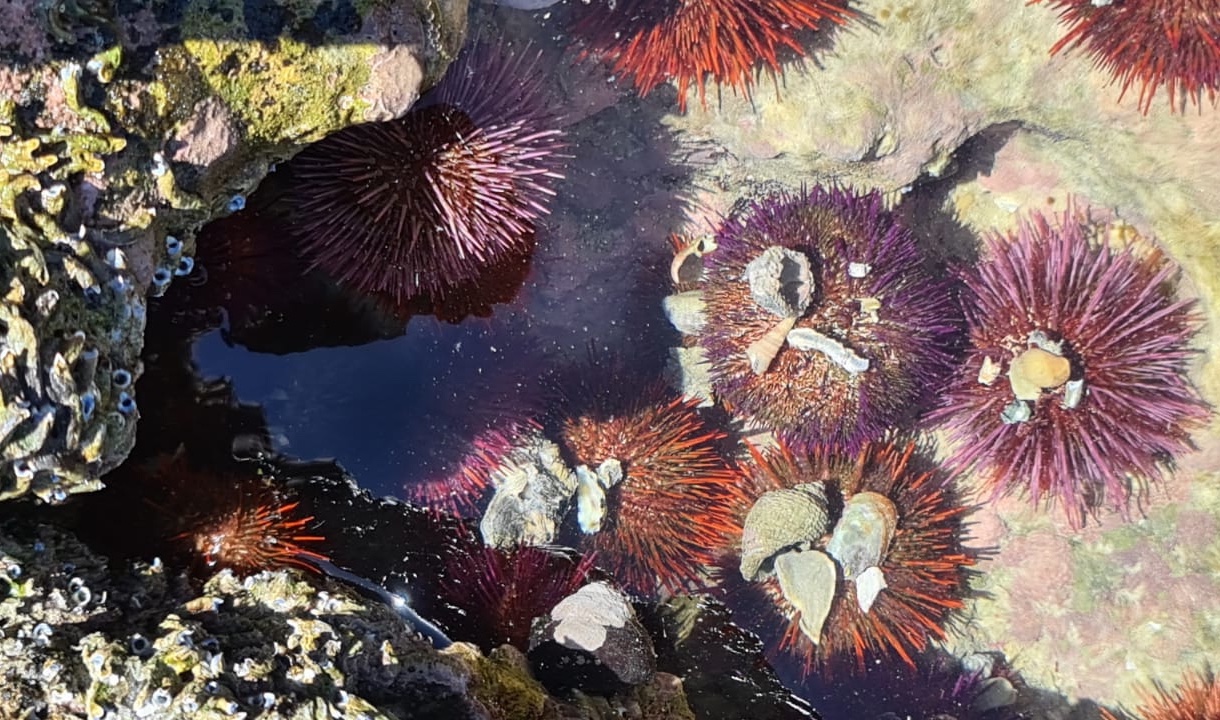

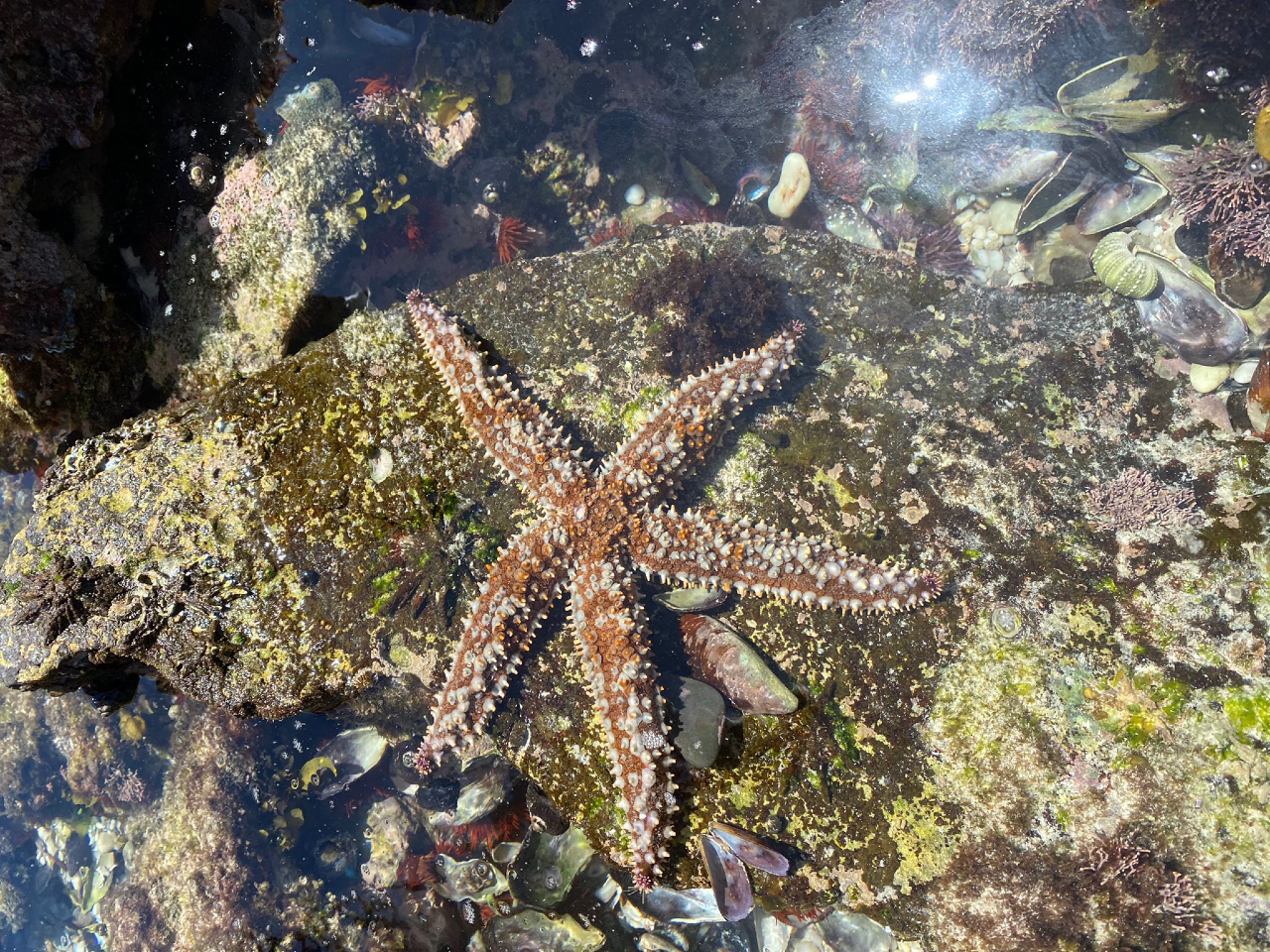

I was impressed not only by our guide’s knowledge, but his ability to handle a group of differing ages. Morukuru is known for its family-friendly ethos, and this was so apparent in how Admire would assist Pippa traverse the shore safely, whilst also focused on our endless questions.
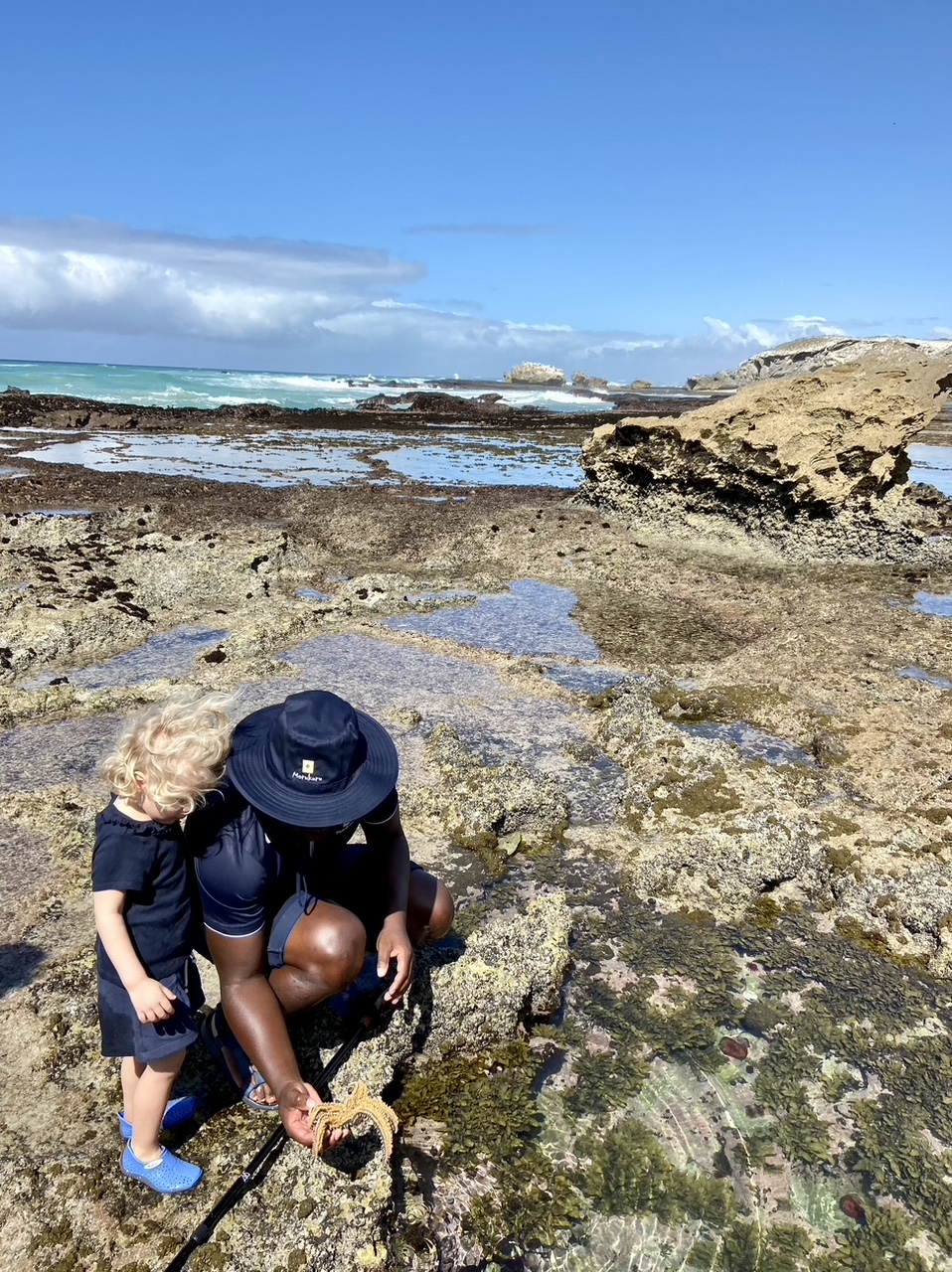

Our appetites truly whetted, we started to think big. Having been blown away by ‘My Octopus Teacher’ last year, top of my marine ‘Big Five’ was to see an octopus, and so Admire led us to the deeper pools towards the shore. Our eyes had started to attune to movements within the pools and I’m proud to claim one of my best ever safari spots, when I caught a quick, fluid movement out of the corner of my eye, as a suckered protrusion from the shadows swept gracefully into the sunlight, as if beckoning to us.
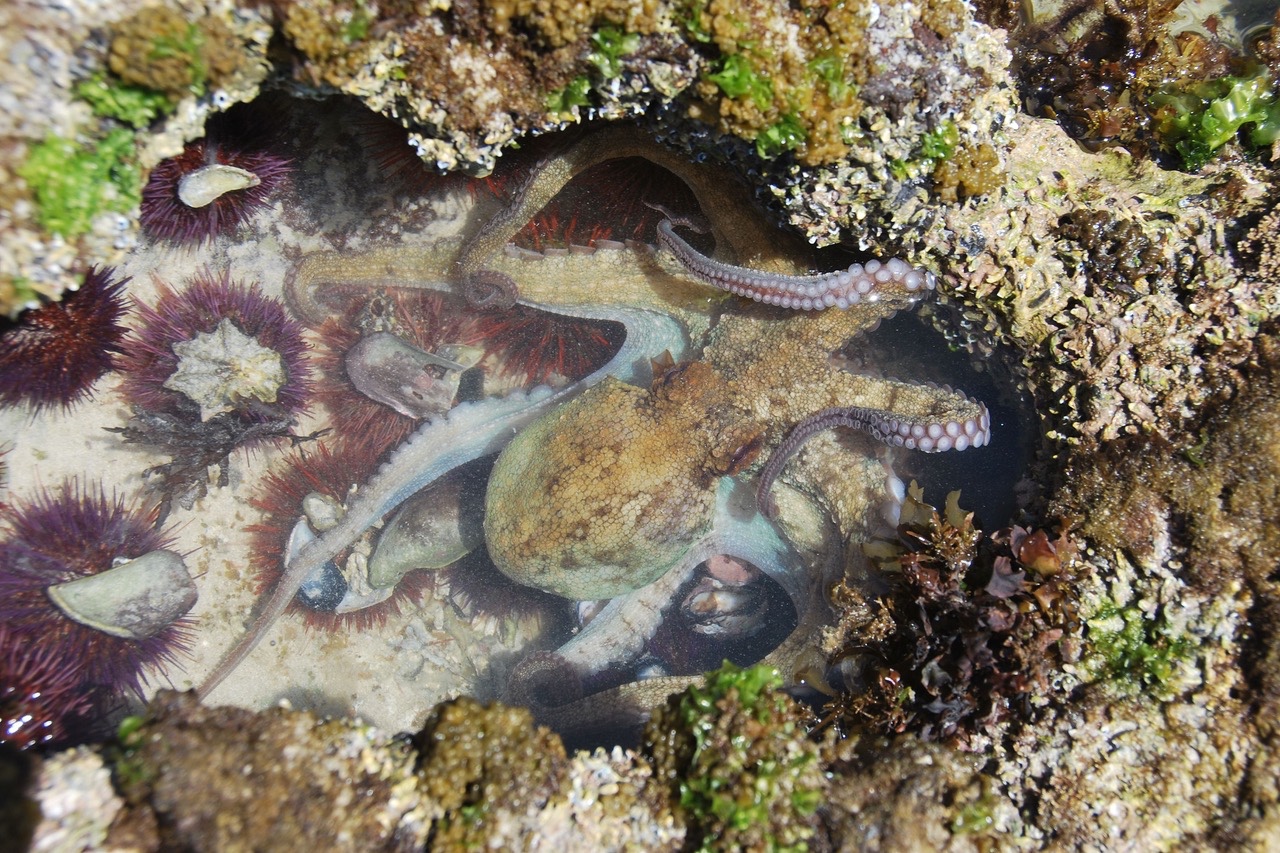

At first the octopus teased us, then he became bolder, and we stood speechless as this beautiful creature traversed the pools before us. It was as if he was dancing for us - I am quite sure he was basking in the attention!
I could have stayed there literally all day watching this extraordinary sight. In fact we probably watched for an hour, but it felt like minutes. Mindful of the need to return for lunch we reluctantly tore ourselves away, only to discover another octopus in an adjacent pool, this one a little more shy.
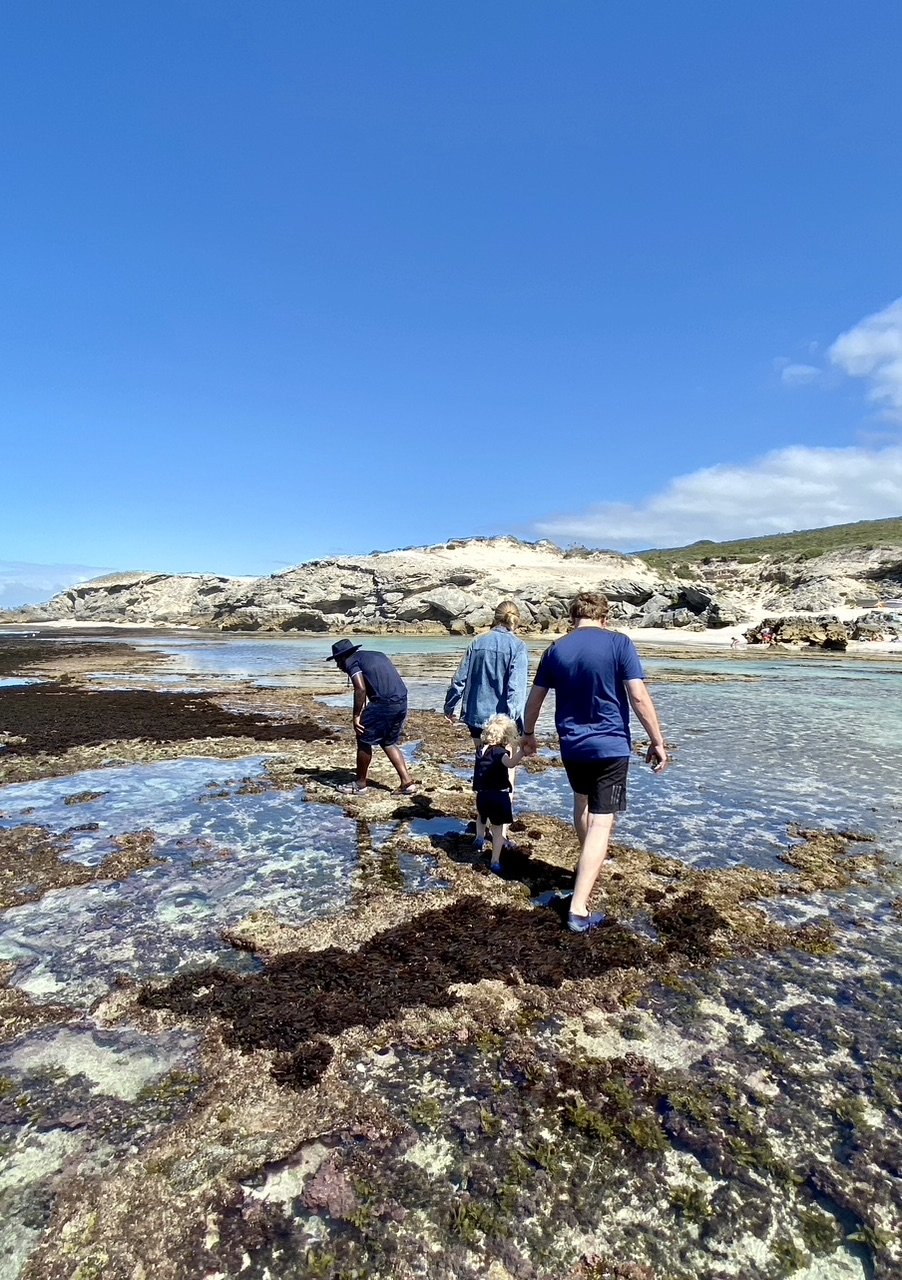

As if we hadn’t marvelled at the wonders of nature enough, we then came across an enormous beehive, hanging on the underside of the roof of a cliff, safe from the honey-badgers. Such beautiful, effective architecture – and not a CAD computer in sight.
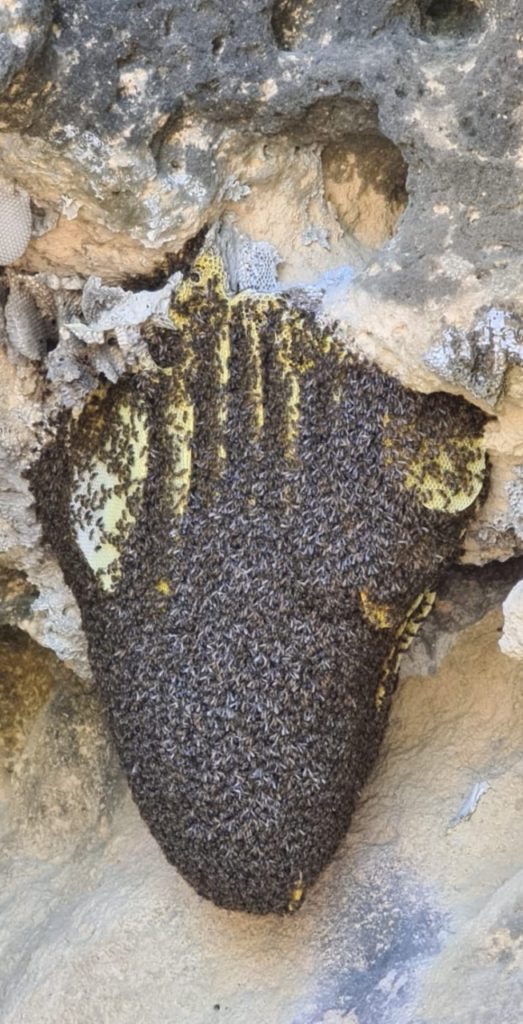

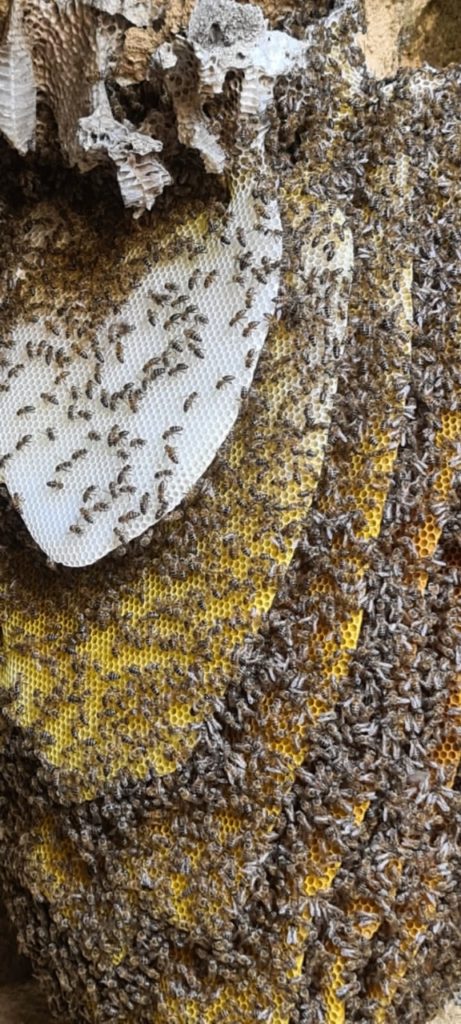

The short walk across the shore back to Morukuru Beach Lodge was replete with birdlife, and though we kept an eye out for seals and dolphins, I think they had got word that the octopus had well and truly stolen the show, so they were saving themselves for another matinee, a different audience.
Morukuru Beach Lodge sits gracefully and unobtrusively, just set back from the dunes, in this incredible landscape, where the worlds of sea and land meet. The dunes shift and change; as does the shore with the tides; and the wide skies with the rhythms of night and day, and weather. The strong, clean lines of Morukuru’s contemporary architecture, with its optimisation of views, juxtaposes this sense of fluidity beautifully, and gives a place of comfort and repose from which to feel a privileged observer of Nature on the grand scale.
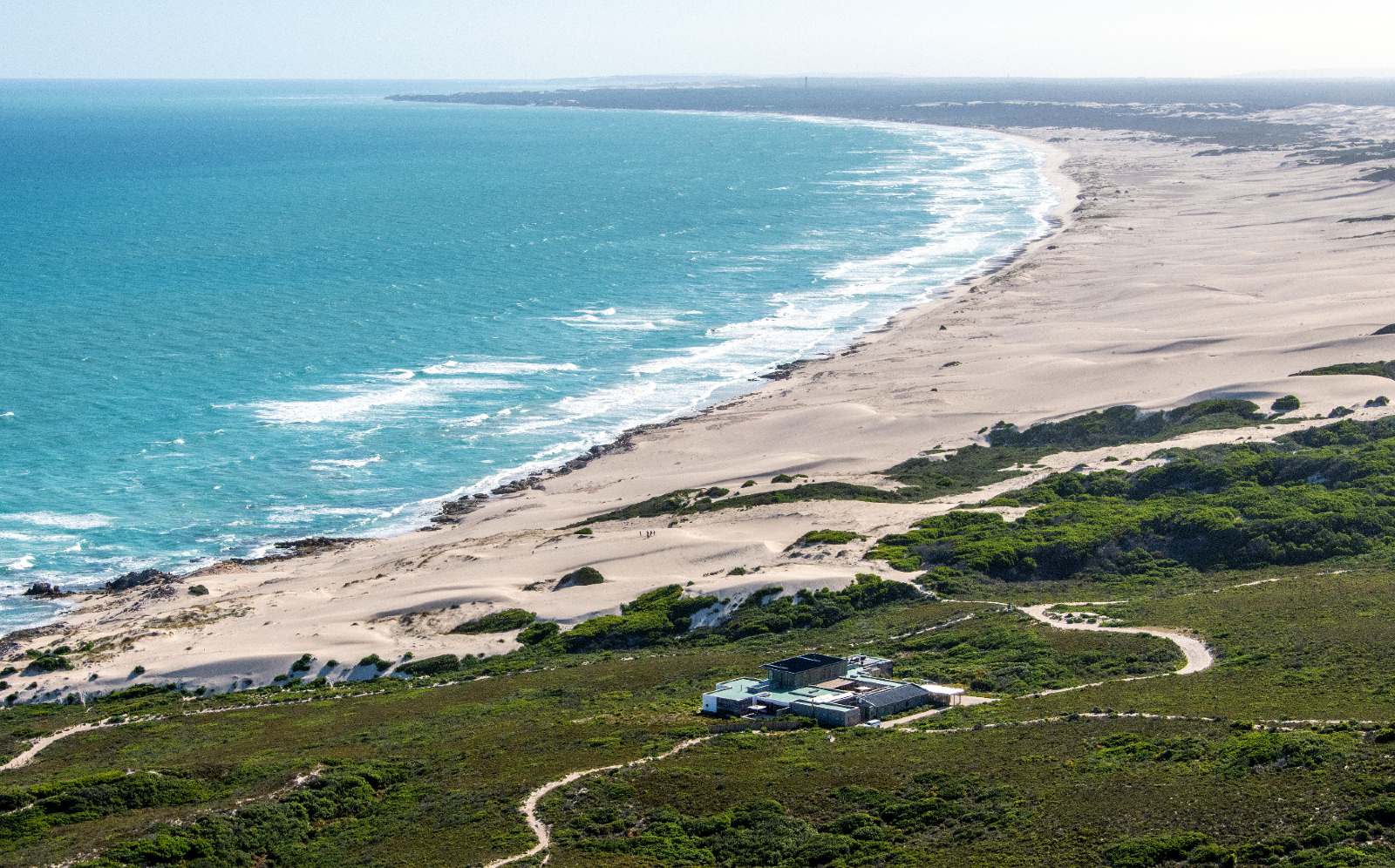

It is easy to see why Morukuru has won Conde Nast Traveller’s Readers’ Choice Award for the last two years: the food and hospitality is exceptional; the interiors and accommodation are excellent; and the many experiences on offer (of which the marine walk is just one) are fascinating and memorable. And all this is enjoyed within a place of such pristine wilderness and natural grandeur as is the De Hoop Nature Reserve - such a quiet, little-known gem of a coastal reserve.
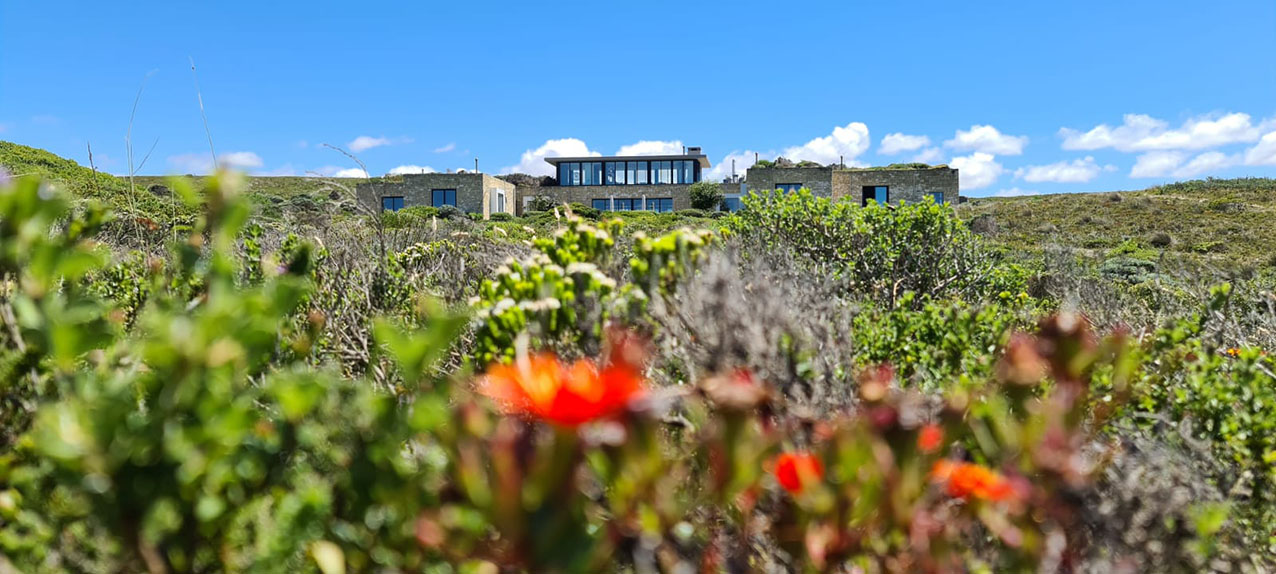

So, to return to the expectation: was Morukuru’s marine walk one of my safari highlights?... I’d go further, as to say that in fact my moments with the octopus will be all time life highlight!
Click here to view Octopus VideoAnd with Morukuru’s specialism at offering the perfect family friendly stay – where style and individuality is not compromised by that flexibility - I hope to one day return with my children to share this extraordinary marine world with them.
By Catherine Armstrong
